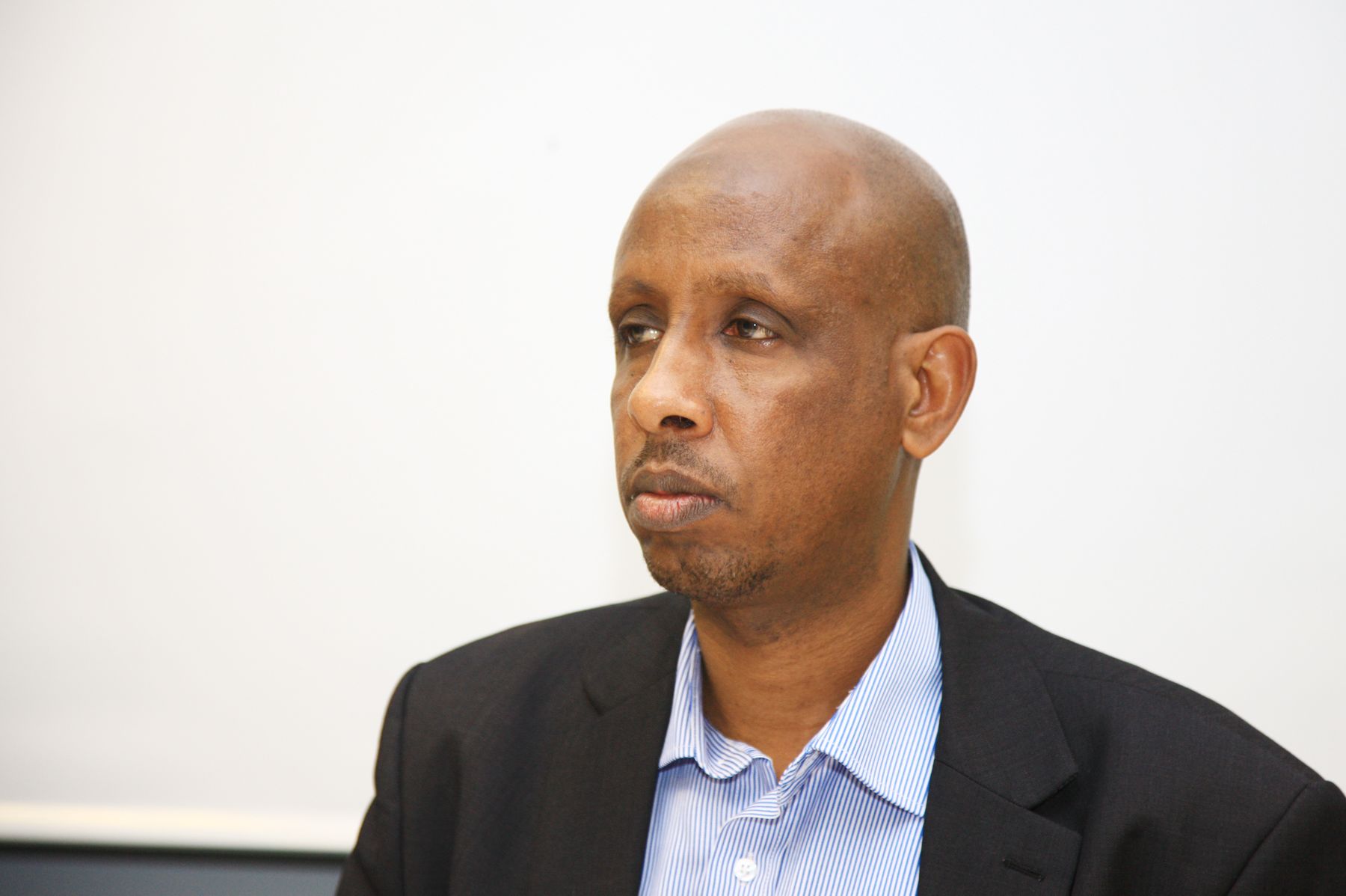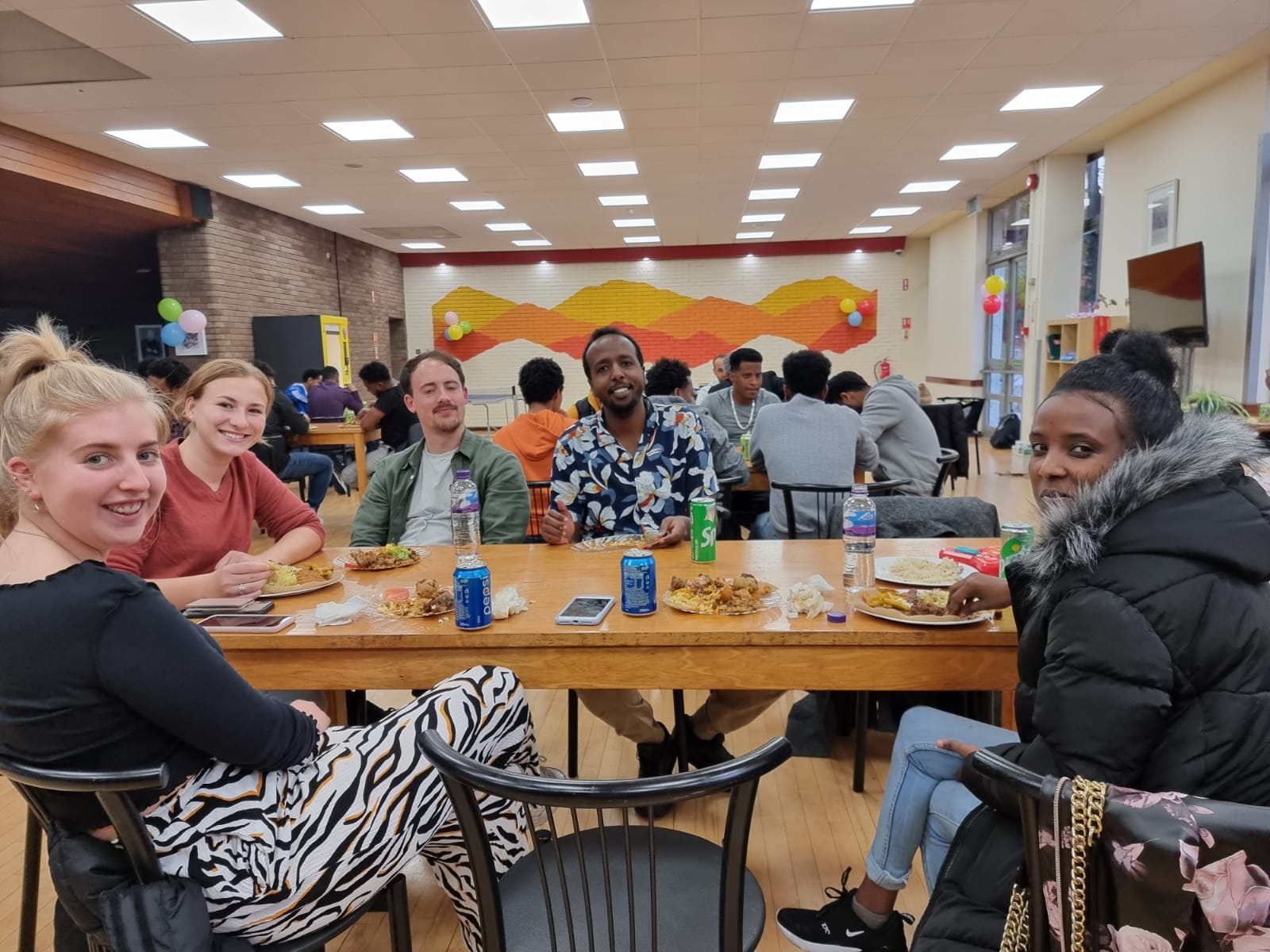THE Covid pandemic has been a challenging time for everyone but for those who have arrived here and made Belfast their home, the past two years has been exceptionally difficult.
Suleiman Abdulahi, Director of Horn of Africa People’s Aid Northern Ireland (HAPANI), has had his work cut out for him since the beginning of the pandemic.
“I haven’t had a day off since the pandemic began in March 2020, it’s been exceptionally busy here, and once one thing ends, another will begin immediately,” he said.
Suleiman and others at HAPANI offer a range of services and help for people from countries situated in the Horn of Africa, such as Djibouti, Ethiopia, Eritrea, Somalia and Sudan, who now live in Belfast and throughout the North. He said Covid has made finding your way a lot more difficult for people who are newly arrived.
The biggest difficulty for Suleiman and his staff has been due to the increase in people working from home, as this has meant that a lot of face-to-face meetings for everyday tasks such as registering with a GP, or enrolling a child in school have become increasingly difficult.
On behalf of Horn of Africa People's Aid Northern Ireland (HAPANI)
— HAPANI (@HAPANI1) October 5, 2021
We appreciate Ulster University for providing two scholarships places for two young Asylum Seeker this academy year.
Suleiman said: “With the loss of face-to-face access many families have struggled as most GPs, schools or organisations will point people towards their website, which is difficult for people who are new to the language, and also who may not have ready access to a laptop or the internet.
"The presumption that everyone in society has immediate access to these things can make things very difficult for new arrivals and many feel like they hit a wall, and have no way to get through to get themselves or their children registered, which is where we step in and try to help out.”
What can seem like an everyday task or mild inconvenience for someone who has grown up here, can become a real bureaucratic nightmare for new arrivals, even though they already have all their correct forms and documents approved. To help understand the difficulty Suleiman said: “Imagine you had to flee your home and everyone you knew due to war, or some disaster, and you end up in China. You would need to register with the doctor, get your kids into a school, contact people to get somewhere to live, but you don’t know any Mandarin or Cantonese, and no-one there knows any English or Irish. If you imagine it that way you can imagine how something small can seem massive from another person’s perspective.”
COVID CRISIS: Suleiman Abdulahi says the inability to meet public servants face-to-face is a major problem for newcomers.
However, despite the difficulties Suleiman is remaining positive about the future, but believes the government could do more to ensure that recent arrivals here are able to find employment and utilise their skills.
“The majority of people we work with are highly skilled, and if there was help to ensure people were able to get the right start, the government could put their skills to great use, especially at a time when, since Brexit, they have been crying out for skilled workers.”
Suleiman also believes that Stormont could do more to combat and oppose British government policies which are designed to cut off undocumented migrants from access to any public services, including healthcare.
“All we want is to be treated the same as everyone else, to be able to work and live in safety and be treated with dignity and respect and I would love to see Stormont do more to combat the hostile environment, which has not only demonised people seeking refuge, but also made life increasingly difficult for them.”





